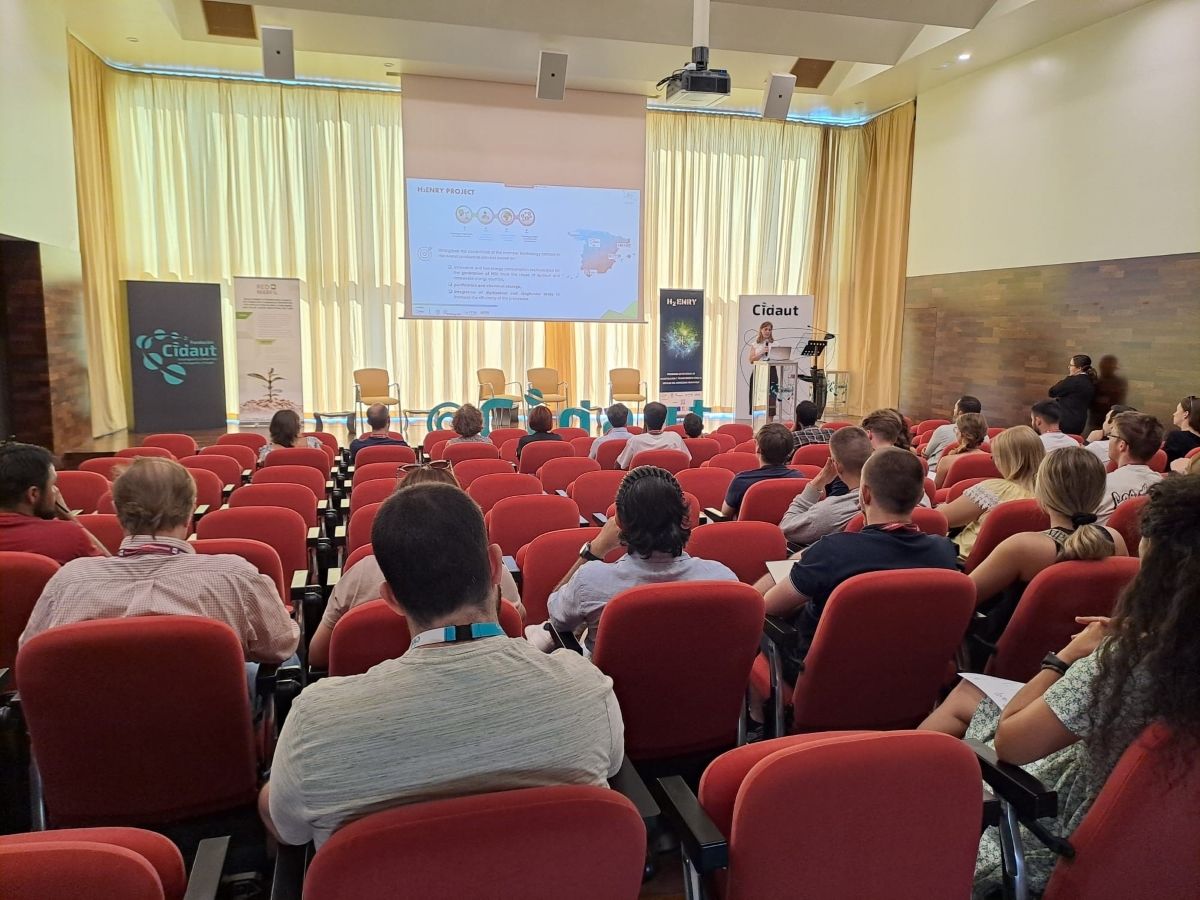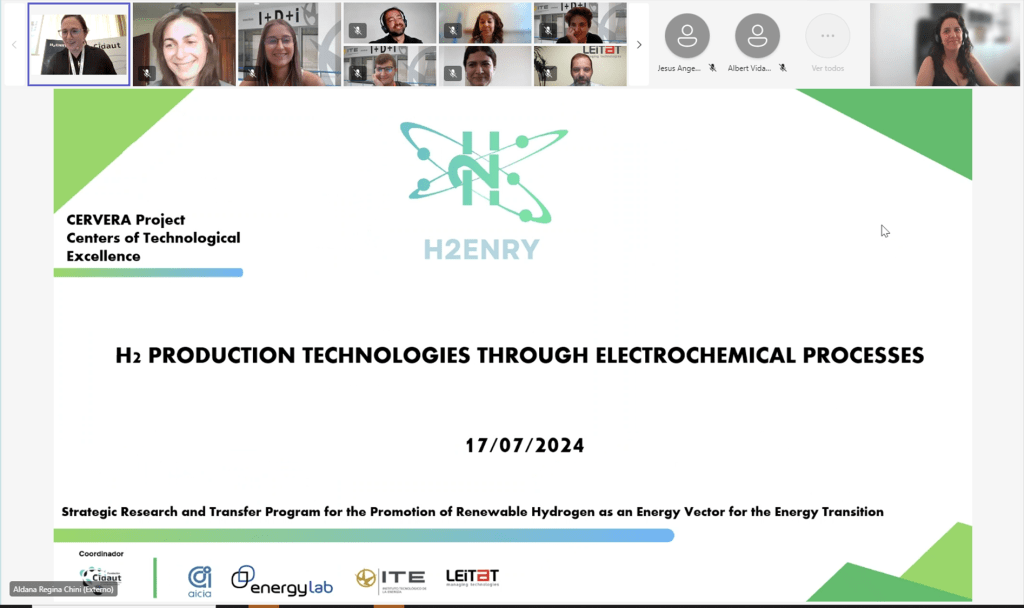On July 17th, CIDAUT hosted the second cross-training session of the H2ENRY project, focusing on «Hydrogen Production Technologies through Electrochemical Processes.» This event was part of the training activities organized within the Cervera Excellence Network and included international students from the University of Valladolid (UVA) Summer School.
During the event, representatives from the five leading technology centers participating in the H2ENRY project—CIDAUT, AICIA, ITE, LEITAT, and EnergyLab—gave presentations on innovative technologies for hydrogen production. The event offered a unique opportunity to dive deeper into electrolysis processes, crucial for green hydrogen production and the advancement of the energy transition.
The day began with a welcome and an introductory video about CIDAUT, followed by a presentation on the H2ENRY project and its partners. The CIDAUT team introduced low-temperature electrolysis technologies, including Alkaline Water Electrolysis (AWE), Proton Exchange Membrane (PEM), and Anion Exchange Membrane (AEM) systems.
LEITAT and ITE led a session on photoelectrochemical (PEC) technologies, a disruptive approach capable of converting solar energy directly into chemical energy in the form of hydrogen. A detailed presentation on this technology was provided, highlighting its potential in green hydrogen production.
The training continued with a session on high-temperature electrolysis, led by EnergyLab and AICIA. This technology, known as Solid Oxide Electrolysis Cells (SOEC), offers promising efficiency in hydrogen production. The challenges and opportunities of high-temperature electrolysis were discussed, emphasizing its relevance in the transition to renewable energy sources.
 Henar Olmedo from CIDAUT highlighted the importance of these training initiatives: «These sessions not only provide a platform to share knowledge among experts but also contribute to the growth and development of new talent in the hydrogen sector, which is crucial for the energy transition.»
Henar Olmedo from CIDAUT highlighted the importance of these training initiatives: «These sessions not only provide a platform to share knowledge among experts but also contribute to the growth and development of new talent in the hydrogen sector, which is crucial for the energy transition.»
The event concluded with a visit to CIDAUT’s facilities, where participants got a closer look at the innovative hydrogen research projects and technologies. The cross-training session demonstrated the H2ENRY project’s commitment to advancing knowledge in electrochemical hydrogen production processes, reinforcing the role of the Cervera Excellence Network in promoting innovation and collaboration among Spain’s leading technology centers.
With the continued support of NextGenerationEU and CDTI Innovación, the H2ENRY project is well-positioned to make significant contributions to the future of green hydrogen production in Spain.

